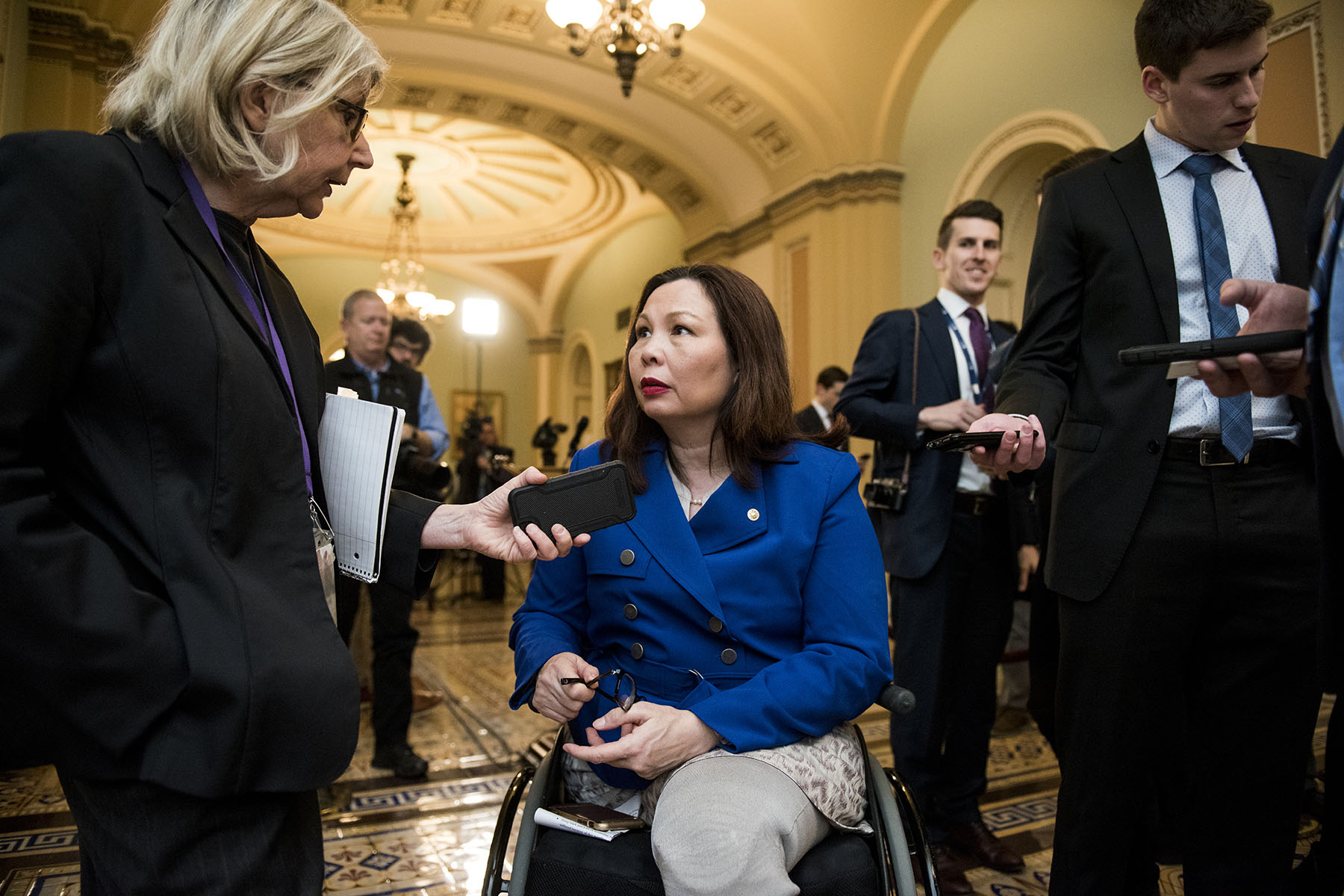We’re telling the untold stories of women, women of color and LGBTQ+ people. Sign up for our daily newsletter.
Over the “Barbie” movie’s opening weekend, Sen. Tammy Duckworth, like many Americans, went to see it with her young daughters and a few friends from their play group. “Barbie” has been the No. 1 movie in America since it opened on July 21. Many viewers have put on their pinkest outfits for showings, and Duckworth’s family was no exception.
“We got all dressed up in pink, and my girls put on their sparkly shoes,” Duckworth told The 19th.
But there was a problem: When they arrived, Duckworth could not enter the theater. She uses a wheelchair, and the single elevator was broken. She ended up sitting outside while her daughters went up to the movie without her.
“They didn’t have [information about the broken elevator] posted anywhere. If I had known, I wouldn’t have come all that way and disappointed my girls,” Duckworth said. Her ticket was refunded and she was given a pass to come back when the elevator is repaired, but it is unclear when that will be. The 19th called the theater multiple times to ask, but did not receive a response.
Thirty-three years after the Americans with Disabilities Act legally required access, much of American life is still inaccessible. This is true even for a U.S. senator.
Claudia Center is legal director for the Disability Rights Education & Defense Fund, also known as DREDF. The organization was founded in 1979 by disabled people to fight for their civil rights. According to Center, Duckworth’s experience is not unique.
Violations of the Americans with Disabilities Act, Center told The 19th, “are exceedingly common. They permeate our environment in all areas of life.”
The problem, according to Center, is enforcement. People can make complaints with various federal agencies online, but enforcement is underfunded, and the sheer volume of complaints means that a response may be slow.
The federal government’s ADA website says that reviewing a complaint can take up to three months, but Center said individuals do not always receive a response in that timeframe, if they receive one at all.
“There are thousands upon thousands of complaints. There is no way for the Department of Justice, at its current level of staffing, to respond to them all,” Center said.
Because of these barriers, some people choose to pursue private action to enforce accessibility, by hiring their own lawyer. But that option is cost-prohibitive and time-consuming.
“You have to find a lawyer — one who will work on some kind of contingency, because most people with disabilities don’t have the money to pay out of pocket. There’s a filing fee to even file a complaint. Everything is very expensive,” she said. There are also no damages that can be awarded, so there is no promised payout for a lawyer later, as there may be in a personal injury case.
Less than 1 percent of housing in America is wheelchair accessible, according to the most recent data available, and many stores, restaurants, movie theaters and other sites of public accommodation are not accessible to people in wheelchairs or with other disabilities.
Some older buildings can be “grandfathered in” and do not need to meet ADA requirements until new construction or renovation occurs. Center calls this “the great compromise” of the law.
“If you build it new, or you redo it, the new construction or the new alteration is supposed to be accessible. The idea is, over time, we’ll have a more accessible society,” Center said. But even that compromise is frequently not met, and much new construction remains inaccessible.
Additionally, businesses that meet some technical requirements may be inaccessible in a practical sense. A movie theater may have wheelchair seating available, but the elevator may be broken, as was the case for Duckworth and her family. There may be a ramp into a restaurant, but the bathroom may be down a flight of stairs.
Unfortunately, there are no legislative or regulatory fixes on the horizon. Congress continues to introduce bills that would further weaken ADA enforcement, which makes it difficult to introduce potentially successful legislation to strengthen protections. Duckworth highlighted the ADA Education and Reform Act of 2017, which ultimately failed, but received bipartisan support.
“The problem is, we’re always playing defense. We spend more time defending the ADA than we do expanding access,” Duckworth said. “There’s not much we can do about this other than highlight this for folks. I would love to be able to pass additional support for the ADA. In 33 years, you shouldn’t be hanging your hat on the building being grandfathered in when you could have put in a fix in that amount of time.”






